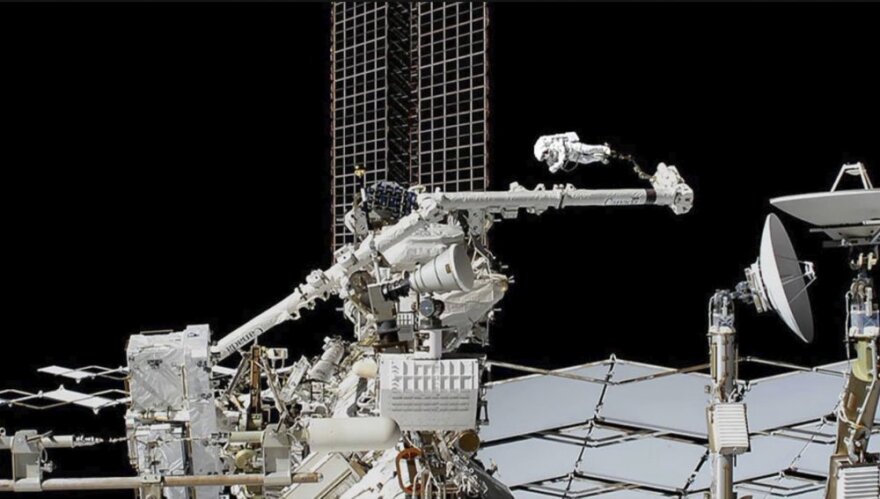Spacewalking astronauts ventured out Friday for the second week in a row to repair a cosmic ray detector, this time actually cutting into the $2 billion instrument.
The International Space Station’s Luca Parmitano sliced through eight stainless steel tubes, using hardware store-type bolt cutters. That set the stage to install new coolant pumps during the third spacewalk on Dec. 2.
Parmitano had to sever the tubes in a specific order and notified Mission Control each time before cutting. His spacewalking partner, Andrew Morgan, backstopped everything.
NASA likened the repair work to heart bypass surgery. At least four spacewalks are needed to fix the spectrometer, on the hunt for elusive dark matter and antimatter for 8 ½ years. Without a new cooling system, the experiment — led by a Nobel laureate — would end.
NASA considers these the most complicated spacewalks since the Hubble Space Telescope repair missions a few decades ago. The spectrometer was not designed to be operated on in orbit.
A zip tie got away from Parmitano — floating harmlessly into space — as he struggled to free power cables buried in the spectrometer. Mission Control told him not to worry about it. It was the only snag in the 6 1/2-hour spacewalk.
“To all of you up there, thanks again for another incredible” spacewalk, Mission Control radioed.
Parmitano, an Italian, and Morgan, an American, began the repair work last week. They spent years training for the operation before launching in July.
The 7 ½-ton (6,800-kilogram) spectrometer rode to the space station during shuttle Endeavour’s final mission in 2011. If successful, the repairs will keep the device working throughout the life of the station, or another five to 10 years.



